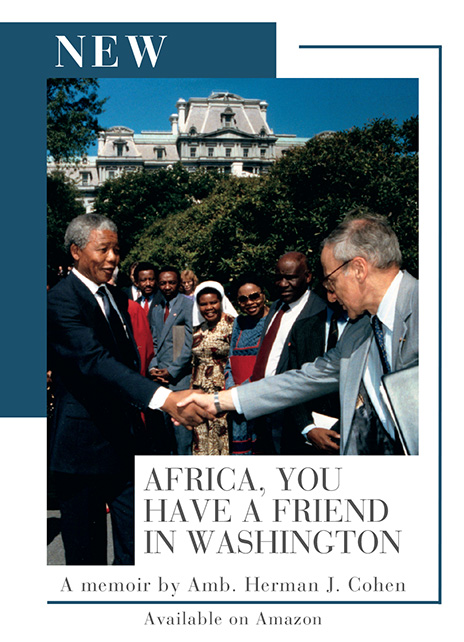Merit Pay for Family Member Employees
Speaking Out
BY JONATHAN GEENSE
Speaking Out is the Journal’s opinion forum, a place for lively discussion of issues affecting the U.S. Foreign Service and American diplomacy. The views expressed are those of the author; their publication here does not imply endorsement by the American Foreign Service Association. Responses are welcome; send them to journal@afsa.org.
“Meritorious Service Increase (MSI) 2022 Open Season: Call for Nominations!” I distinctly remember seeing that cable. I am an eligible family member (EFM) employed as community liaison office coordinator (CLO) in Chisinau and have been for nearly four years. The cable caught my eye because I am at a Grade 6 Step 6, and for the last three evaluation cycles, I have achieved an “Outstanding” rating on my Employee Performance Report (EPR).
I eagerly read through the cable, hoping that surely there would be an opportunity for someone like me, who has performed at a reasonably high level, to earn a pay increase on the merits of my work. I read the cable a second time, dug deeper into the Procedural Precepts, and spelunked my way through the guidance on MSIs from the Bureau of Global Talent Management (GTM). Was I missing something?
Unfortunately, no. As it stands today, EFMs have no way of increasing their pay via a merit-based system. Not through MSI, not through annual performance reviews, nor through any other mechanism that I have found in almost four years working for the State Department.
In fact, a “quick” read through the text of the Foreign Service Act of 1980 reveals that, yes, it does explicitly provide for salary increases for “especially meritorious service,” and no, it does not exclude EFMs from that mechanism. But the bureau’s guidance document is clear that EFMs are—ironically enough—not eligible for MSI.
I believe it’s long overdue for EFMs to be able to participate in the same MSI system that officers have access to and that shows the value they bring to the department’s workforce.
Good news is on the horizon, however. As of spring 2023, there were working groups within the Department of State—with input from GTM, the American Foreign Service Association (AFSA), and other stakeholders—aware of this issue and moving it forward. I am pleased that this is being given serious consideration.
What follows is my argument for why allowing EFMs access to a merit-based promotion system is so important.
Our Value
As many in the Foreign Service community know, completely uprooting from the U.S. or a current post every two, three, or four years is immensely difficult. Adding financial uncertainty and stress only compounds the issues.
Many spouses who accompany their partners into the Foreign Service are giving up professional degrees, six-figure incomes, friends, family, and other support networks, only to be faced with job opportunities that pay considerably lower than what they had been making.
As it stands today, EFMs have no way of increasing their pay via a merit-based system.
I appreciate that the State Department identifies EFMs as “vital” and “integral” to the important work of missions around the world (20 STATE 21900). But the limitation on ways EFMs can permanently increase their base salary stands in contrast to the kind words. Let me explain.
There are two ways EFMs can increase their pay while encumbering a position at an overseas post. First, through some type of award system like State Department annual awards or the Secretary of State Awards for Outstanding Volunteerism Abroad (SOSA), Champions of Career Enhancement for EFMs Award (CCE-EFM), the Eleanor Dodson Tragen Award, or AFSA’s M. Juanita Guess or Avis Bohlen awards. These are temporary, one-off lump sum payments. The second is through a within-grade increase (WGI), which occurs annually on your date of entry for steps 1 to 9 and every other year once you reach step 10.
The latter is a nice feature of employment overseas but can be problematic for EFMs because of the erratic nature of our employment and the varied grades and positions we can encumber throughout our careers. This isn’t true for our officer spouses, who are enticed by full-grade promotions, tenure, MSI, and much more. For us, it is a nonlinear, asymmetrical process.
Just because I’m a Grade 6 Step 6 now does not guarantee that I will always be a Grade 6. If I were to remain employed in my current position, I could look forward to an annual step increase that would take me to Step 7. However, when we move to a new post and I take a job that is a Grade 7 and Highest Previous Rate puts me at Step 10, I must now wait two years to see the next step increase. Access to MSI could help to alleviate this issue for high-performing EFMs.
Ultimately, this is less an argument about money, and more about EFMs’ value to the State Department. Secretary of State Antony Blinken has been very vocal about departmentwide diversity, equity, inclusion, and accessibility (DEIA) initiatives. In fact, there’s even a guiding question about our career advancement opportunities in cable 21 STATE 109880 of Oct. 29, 2021, “Guidance on Integrating Diversity, Equity, Inclusion, and Accessibility into Integrated Country Strategy Management Objective and Sub-Objectives”: “Are all employees, including LE Staff and EFMs, equitably offered career advancement and training opportunities?”
DEIA is a worthy endeavor that should be embraced by the Foreign Service community. The issue of EFM value should be part of this. In my view, access to merit-based pay increases would fall very squarely in the equity and inclusion buckets. A more equitable, inclusive, and just Department of State is one that offers hardworking EFMs a merit-based opportunity to improve our own financial station.
Our Compensation
I have heard the argument that spouses/EFMs don’t really need higher salaries because of the other benefits we receive such as U.S. government–paid housing, access to Thrift Savings Plan (TSP) participation, annual and sick leave, health benefits, life insurance, and the opportunity to earn noncompetitive eligibility status.
This is less an argument about money, and more about EFMs’ value to the State Department.
But let’s not also pretend that all personal finance situations are created equal. There are mortgages, college, elder care, childcare, a rising cost of living due to inflation, and much more to pay for, which higher salaries would alleviate.
I’ve also heard the unsettling argument that EFMs are coming in with lower skills and lower education. I don’t think that was ever true of spouses, but the skill sets of today’s EFMs are truly remarkable. Look no further than right here in Chisinau. We have multiple spouses with Ph.D. and master’s degrees. I, myself, hold two master’s degrees and come from an international development–related background.
But when I hear officers say (as a point of pride), “I treat my EFM employee just like any other officer,” I’m concerned that there is a structural inequity in that one is being paid for that value while the other is not. In fact, the idea of keeping pay low based on “other benefits” is a strawman argument at best, outright spurious at worst.
The family member appointment (FMA) system—created 35 years ago, in 1988—already precludes us from benefits that officers receive, including hardship differential and COLA. When EFMs are under FMA appointment, we are not given the same benefits or differentials. A brilliant discussion of FMA and its limitations can be found in Debra Blome’s 2016 FSJ article, “Taking On Family Member Employment. Really!”
The Expanded Professional Associates Program (EPAP) has leveled the field to a degree. EFMs with the requisite education and work background who are eligible for those positions will see a substantial increase in their starting grade. The trouble comes when that EFM who is holding an EPAP position heads to a new post and finds that the same or similar EPAP position is not available.
The positions that are available are lower grades (sometimes two or three grades lower). This EFM cannot be paid less than their previous high salary (Highest Previous Rate), except when the highest step for that graded position is still below what they were making as an EPAP.
Here’s an example using the 2023 FS salary schedule including 21.66 percent overseas comparability pay (OCP): An EFM in a Grade 4 Step 7 EPAP position making $90,826 leaves post and takes … a Grade 7 Step 14 non-EPAP position (due to circumstances beyond the EFM’s control) and earns $72,337, the highest pay level allowed.
In my view, access to merit-based pay increases would fall very squarely in the equity and inclusion buckets.
As it currently stands, this EFM cannot change the grade of their current position or go to another step. Why is this EFM unable to carry their previous grade and step with them? I understand that positions are graded based on level of responsibility and other factors. However, this quirk in the system could be alleviated in a small but significant way if EFMs were given access to the MSI program.
The Foreign Affairs Manual (3 FAM 4891.5-6) has already accounted for this situation, noting that “those approved for an MSI who have reached the highest step of their grade ... by the effective date of an approved MSI will be granted a cash payment in the amount of $2,500 in lieu of a step increase.”
Our Future
In Chisinau, we started the EFM Professional Development Initiative, which is specifically designed for EFM spouses employed at the embassy. At our kickoff meeting, we identified issues of interest such as benefits, compensation, training, support networks, and more. Our post’s leadership, Deputy Chief of Mission Laura Hruby, a champion for EFM professional development, drove the conversation.
This has been a worthwhile endeavor for me personally, as it has given me a sense that I’m not alone and someone has my back. I look forward to continuing the discussion within my own community and hope that we will be able to share the successes and challenges of our group with other interested missions.
For now, the work needs to get done, and I aim to continue performing at an outstanding level despite the fact that not having the potential for merit-based pay increases challenges my motivation.
Whether an oddity of bureaucracy or an oversight in design, it is wrong that there is no merit-based system for EFMs—a cohort described as a “vital” and “integral” part of the State Department’s workforce. These highly qualified EFMs do important (and sometimes indispensable) work at embassies around the world, but in the absence of merit-based pay increases, they’re left asking, “Why not?”
For spouses and other EFMs who continue to work hard while our skills and abilities go unrewarded, another, more ominous question looms: “Why?”
When sharing or linking to FSJ articles online, which we welcome and encourage, please be sure to cite the magazine (The Foreign Service Journal) and the month and year of publication. Please check the permissions page for further details.
Read More...
- “FS Spousal Employment: Slow but Steady Progress” by Shawn Zeller, The Foreign Service Journal, April 2012
- “Taking on Family Member Employment. Really!” by Debra Blome, The Foreign Service Journal, July/August 2016
- “Get Ready for Merit-Based Compensation” by John Elizabeth LaMontagne, The Foreign Service Journal, December 2018




